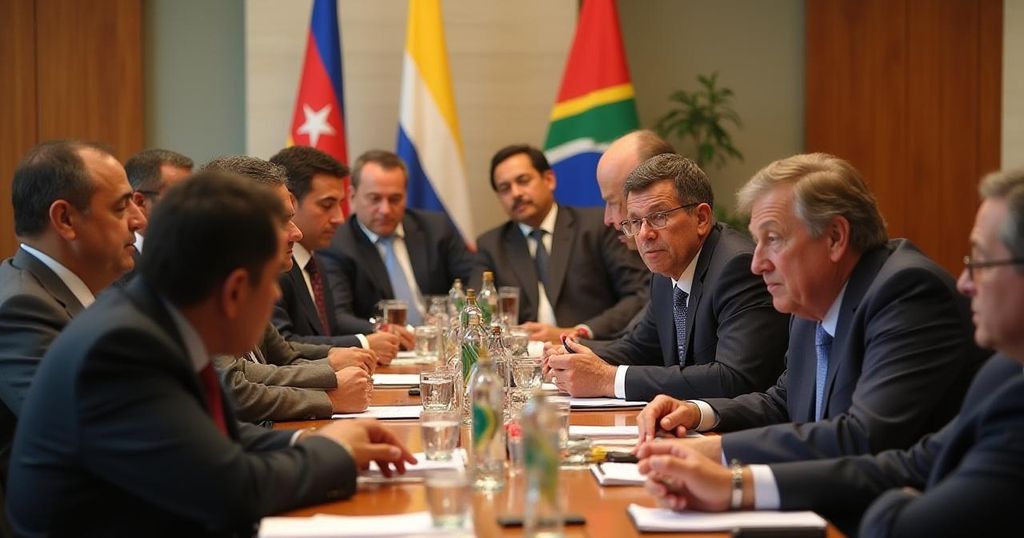Namibia and South Africa Advocate for Cuba and Venezuela Amid Economic Strife

Namibia and South Africa expressed their support for Cuba and Venezuela during a ministerial meeting in Swakopmund, condemning U.S. sanctions against Cuba and calling for their end. They also denounced Israeli actions in Lebanon, advocated for the lifting of sanctions on Zimbabwe, and addressed issues concerning Western Sahara’s right to self-determination.
During a recent ministerial meeting held in Swakopmund, Namibia, on October 14 and 15, the Foreign Ministers of Namibia and South Africa, Peya Mushelenga and Ronald Ozzy Lamola respectively, publicly declared their support for Cuba and Venezuela as these nations confront significant economic challenges exacerbated by unilateral sanctions. Both ministers specifically condemned the prolonged economic, financial, and commercial embargo imposed on Cuba by the United States, which has been in place for over sixty years, calling for its immediate cessation. Additionally, the meeting addressed the ongoing conflict in the Middle East, categorically denouncing Israel’s military actions in Lebanon as a gross violation of both sovereignty and the principles of international humanitarian law. The ministers urged the international community and the United Nations Security Council to reinforce international law in response to such violations. Moreover, the issue of sanctions against Zimbabwe was highlighted, with both ministers demanding the immediate and unconditional lifting of what they termed illegal sanctions that are hindering the socioeconomic progress of Zimbabwe and negatively impacting the greater Southern African region. The discussions further included the situation in Western Sahara, where the ministers welcomed the recent ruling by the Court of Justice of the European Union (CJEU), which determined that the European Commission’s actions infringed upon the right to self-determination of the Western Sahara people.
The interaction between Namibia and South Africa regarding their support for Cuba and Venezuela reflects a broader political stance shared by many African nations, advocating for the end of economic sanctions that are perceived to hinder development and sovereignty. The historical context of Cuba’s blockade by the United States, which has persisted since the early 1960s, serves as a critical point of contention in international relations. Furthermore, the ministers’ condemnation of Israel’s military activities underscores the importance of international humanitarian law in the ongoing geopolitical discourse. The focus on Zimbabwe also highlights the socioeconomic challenges faced by the country due to sanctions, while the situation in Western Sahara sheds light on issues of self-determination and territorial rights in international forums.
In conclusion, the ministerial meeting held in Swakopmund represents a significant diplomatic effort by Namibia and South Africa to advocate for the cessation of economic sanctions against Cuba, Venezuela, and Zimbabwe, while also addressing violations of international law in conflicts such as that in Lebanon. The discussions illustrate a commitment to supporting sovereignty and promoting regional development within African nations and their allies.
Original Source: www.plenglish.com








